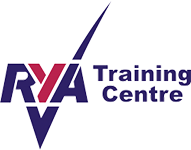
 Tue, Dec 05 2023 - Fri, Dec 08 2023
Tue, Dec 05 2023 - Fri, Dec 08 2023  Mayo
Mayo  €495
€495 Long Range Certificate (LRC) – Co Mayo
Who this course is for: Anyone that operates a radio on a recreational craft, passenger boat or fishing vessel more than 30 miles from the coast.
Every vessel that is equipped with MF/HF radio or a GMDSS-compliant satellite transceiver must carry at least one marine radio operator with this minimum qualification.
Length of course: This course is held over 4 days.
Objective: To gain the skills and knowledge to confidently and correctly operate Inmarsat C/Fleet 77 satellite and VHF/HF/MF radio equipment, including Digital Selective Callings (DSC), EPIRB, SART, and NAVTEX.
Assessment: There are two written exams and two oral exams.
Successful candidates will receive a Long Range Certificate issued by the Irish Department of Transport and recognised worldwide.
Prerequisites:
Although not essential, it is preferred that candidates already hold a SRC.
Format of the course: Prior to the course, candidates are given course notes and are encouraged to access our online simulator. During the class, each student will have hands-on practice with our classroom GMDSS simulator, as well as plenty of practical experience with EPIRBs, SARTs, and NAVTEX.
Syllabus:
- Types of communications
- Types of stations
- Radio frequencies
- Maritime Mobile Satellite Service
- GMDSS structure
- Search and Rescue (SAR)
- Maritime Safety Information (MSI), NAVTEX, Inmarsat C
- VHF radio installation
- MF/HF radio installation
- Digital Selective Calling (DSC)
- Antennas, interfacing and power sources
- Distress, urgency, safety communications
- Protection of distress frequencies
- Procedures/practical operation of Maritime Mobile Satellite Service
- Alerting, communication and locating signals
- Radiotelephony procedures - Safety of Life at Sea (SOLAS)
- Regulations for VHF/MF/HF communications
- Book Online



